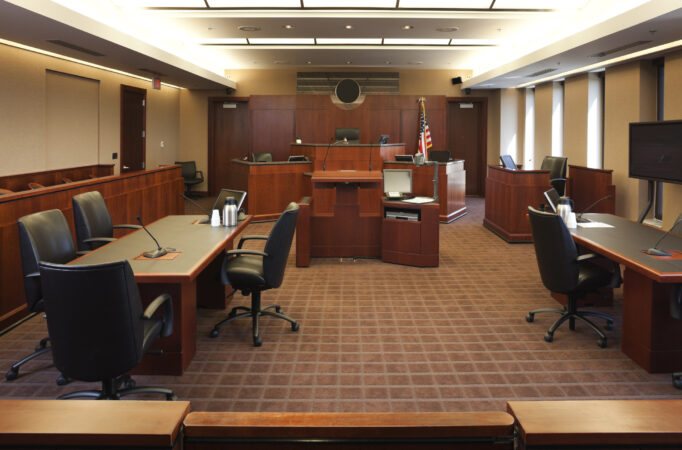Litigation: Latest Legal Blogs and News
Pennsylvania Superior Court finds that Oral Contract Supports Claim under Contractor Subcontractor Payment Act and that “curbs” Constitute “structures” and “improvements to Real Property”
By opinion dated September 10, 2014, a three judge panel of the Pennsylvania Superior Court continued the trend of applying the Contractor and Subcontractor Payment Act in a broad fashion. In Prieto Corp. v. Gambone Constr. Co., No. 1538 EDA 2013 (Pa. Superior 2014), the Superior Court affirmed the Court of Common Pleas of Montgomery County and held that a subcontractor who was orally engaged to install curbs at construction sites had a valid claim under CASPA.
Prieto Corp. sued Gambone Construction for non-payment and under CASPA to recover the value of installing curbs at four separate projects. Although Prieto had no formal written contracts for the work, there was a long history of dealing between the parties which established a practice by Gambone of issuing a purchase order to Prieto, Prieto completing the work and invoicing Gambone upon completion.
The Superior Court focused on two primary issues: 1. Do “curbs” constitute the type of “structure” or “improvement” contemplated by CASPA; and 2. Were there valid and enforceable oral contracts between the parties? The Court answered both questions in the affirmative.
Initially the Court examined Appellant Gambone’s argument that “curbs” did not constitute an “improvement” as defined in 73 P.S. section 502 to include (1) all or any part of a building or structure. (2) The erection, alteration, demolition, excavation, clearing, grading or filling of real property. (3) Landscaping, including the planting of trees and shrubbery, and construction driveways and private roadways on real property.
The court held that under existing case law and based on a plain reading of the word, a “curb” “is a raised edging serving as a roadway border . . . “and therefore constitutes both “a structure – a raised edging – and an alteration or real property” as those terms are used in CAPSA.
With respect to the issue of whether valid oral contracts existed, the court held that the practice of issuing a purchase order by Appellant, and Appellee’s completion of the work and submission of invoices, coupled with an over 10 year course of dealing and partial payment by Appellant was sufficient to demonstrate valid and enforceable oral contracts.
The court stated that CAPSA is intended to apply to “construction contracts” which are defined as agreements, whether written or oral, to perform work on any real property located within the Commonwealth. Based on its findings that an oral contract existed to perform work that constituted “improvements” as that term is used in CASPA, the Court entered judgment in favor of Appellee.
The Superior Court focused on two primary issues: 1. Do “curbs” constitute the type of “structure” or “improvement” contemplated by CASPA; and 2. Were there valid and enforceable oral contracts between the parties? The Court answered both questions in the affirmative.
Initially the Court examined Appellant Gambone’s argument that “curbs” did not constitute an “improvement” as defined in 73 P.S. section 502 to include (1) all or any part of a building or structure. (2) The erection, alteration, demolition, excavation, clearing, grading or filling of real property. (3) Landscaping, including the planting of trees and shrubbery, and construction driveways and private roadways on real property.
The court held that under existing case law and based on a plain reading of the word, a “curb” “is a raised edging serving as a roadway border . . . “and therefore constitutes both “a structure – a raised edging – and an alteration or real property” as those terms are used in CAPSA.
With respect to the issue of whether valid oral contracts existed, the court held that the practice of issuing a purchase order by Appellant, and Appellee’s completion of the work and submission of invoices, coupled with an over 10 year course of dealing and partial payment by Appellant was sufficient to demonstrate valid and enforceable oral contracts.
The court stated that CAPSA is intended to apply to “construction contracts” which are defined as agreements, whether written or oral, to perform work on any real property located within the Commonwealth. Based on its findings that an oral contract existed to perform work that constituted “improvements” as that term is used in CASPA, the Court entered judgment in favor of Appellee.
About Us
The litigation attorneys at Houston Harbaugh, P.C., are accomplished business trial lawyers, providing comprehensive support in litigation across a broad spectrum of matters throughout Pennsylvania, West Virginia, Ohio and other jurisdictions upon a special admission basis. Our clients are regional and national small, medium and large companies and individuals who seek well planned and aggressive, but cost effective litigation. We counsel, we budget, we have a deep bench, we act quickly when needed and we have experienced trial lawyers who know the courts and bench. We serve regularly as local counsel for some of the largest law firms in the country when they have matters in this region.

Henry M. Sneath - Practice Chair
Co-Chair of Houston Harbaugh’s Litigation Practice, and Chair of its Intellectual Property Practice, Henry Sneath is a trial attorney, mediator, arbitrator and Federal Court Approved Mediation Neutral and Special Master with 98 trial verdicts and extensive federal and state court trial experience in cases involving commercial disputes, breach of contract litigation, Artificial Intelligence (AI), intellectual property matters, patent, trademark and copyright infringement, trade secret misappropriation, DTSA claims, cyber security and data breach prevention, mitigation and litigation, employment and restrictive covenant litigation, probate trusts and estates litigation, construction claims, eminent domain, professional negligence lawsuits, pharmaceutical, products liability and catastrophic injury litigation, insurance coverage, and insurance bad faith claims. DTSALaw® Business Litigation. Pittsburgh Strong.®

Samuel H. Simon - Practice Chair
As co-chair of Houston Harbaugh’s Litigation Group, Sam focuses his practice on commercial/business litigation. Sam regularly represents clients in the construction, manufacturing, oil and gas, and wholesale/retail/ distribution industries, as well as individuals in matters such as:
- Construction litigation
- Environmental litigation
- Breach of contract disputes
- Oil and gas litigation
- Negligence
- Restrictive covenants (non-compete agreements)
- Civil rights
- Collections/creditors’ rights
- Lease disputes

